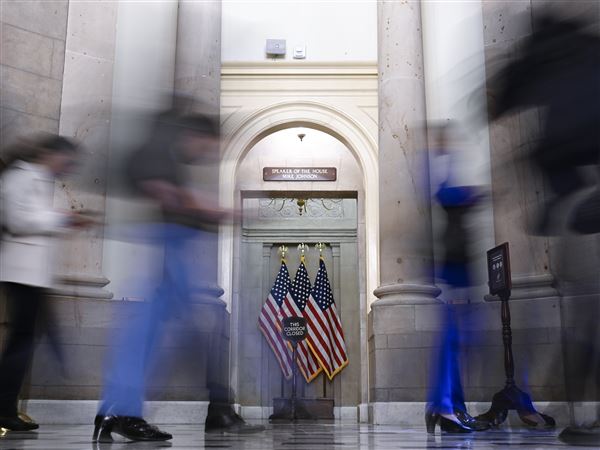The course of action that the United States is taking toward the Palestinians, following the rout of Fatah by Hamas in Gaza, is unrealistic and thus likely to result in a worsening situation in the Middle East.
The key U.S. objective in the Israeli-Palestinian conflict must continue to be the creation of two states, each one recognizing the other, living in peace in land now known as Israel, the West Bank and Gaza. It is also obvious that resolution of this 59-year-old problem is important to prospects for peace in the world in general, in particular with respect to the evolving, occasional face-off between "the West" and Islam in various conflict countries.
What happened is that Israel, in effect, pulled out of Gaza in 2005 according to a plan devised and implemented by former Prime Minister Ariel Sharon. The Palestinians then held what were determined to be free, democratic elections in January 2006, which pitted Yasser Arafat's old-time Fatah, led by current Palestinian Authority President Mahmoud Abbas, against more militant, more Islamic Hamas. Hamas won.
Rather than accept Hamas' victory, Israel, the United States and some Europeans tried to make it impossible for Hamas to rule by cutting off Palestinian and external funding. Fierce fighting eventually broke out between Fatah and Hamas. Hamas won again, in spite of U.S. military aid to Fatah. Mr. Abbas then named -- in place of the previous Fatah-Hamas national unity government -- a new Fatah government, based exclusively in the West Bank. In return, Hamas named a new Hamas government in Gaza.
Now the United States, Israel and some Europeans have decided to continue supporting the Fatah West Bank government exclusively, to try to starve out the Palestinians and Hamas in Gaza. This position was affirmed most recently by President Bush after his Tuesday meeting with visiting Israeli Prime Minister Ehud Olmert.
The problem with the policy is that it is out of touch with the reality of the situation among the Palestinians. Worse, it leads nowhere in terms of renewing a Middle East peace process that can lead eventually to a two-state agreement and an end to the conflict.
There are 1.5 million Palestinians in Gaza, now living under Hamas rule. Even if the 2.5 million Palestinians in the West Bank support Fatah -- which is by no means certain -- Mr. Abbas' party lost the elections and the battle for Gaza and is in no position to negotiate meaningfully for the Palestinians with the Israelis or the United States. Gaza is a miserable piece of real estate, but it is at least free of Israeli settlers. By contrast, the West Bank has hundreds of Israeli settlements and a wall stretching across it, making Palestinian authority there and Mr. Abbas' government a bad joke.
Trying to deal with a difficult situation like this one from an unrealistic position is almost certain to lead to disaster, in this case the perpetuation of a long and bloody conflict. President Bush needs to rethink this issue and put the United States on a constructive track that will lead to a settlement before things get worse. In the Middle East, they will, soon.
First Published: June 21, 2007, 12:30 a.m.
















